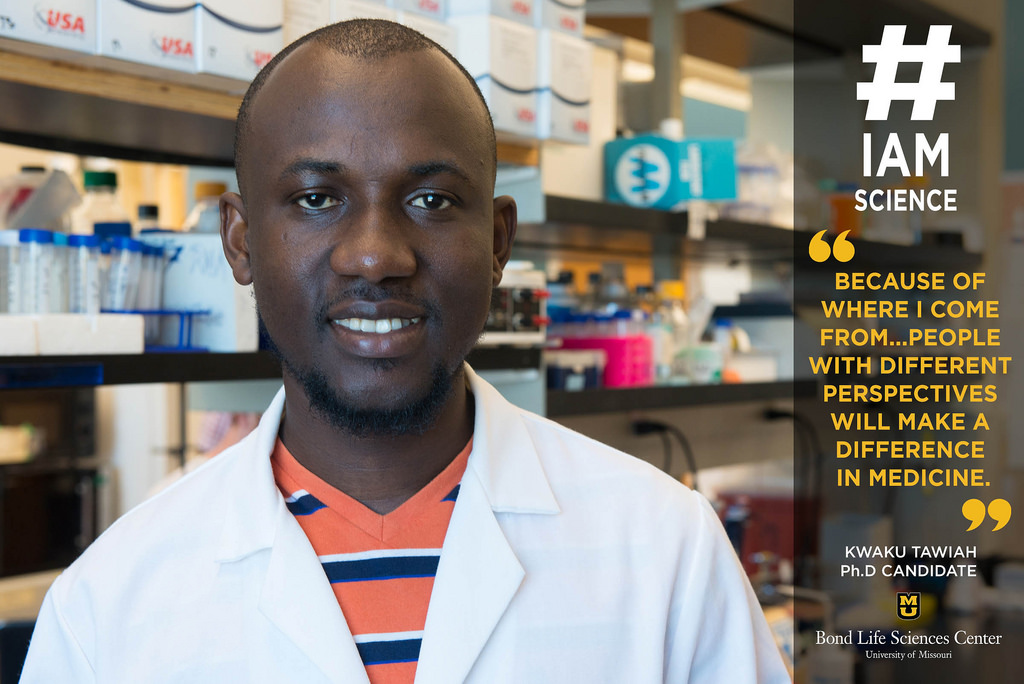Published on

Kwaku Tawiah, a Ph. D candidate in biochemistry at MU, stands near his lab station in the Burke Lab in Bond LSC. | photo by Mary Jane Rogers, Bond LSC
By Mary Jane Rogers | Bond LSC
“#IAmScience because of where I come from. If you look at Africa, we have some of the most dangerous infectious diseases in the world…When you see these diseases first-hand and the havoc they cause, you want to solve the problem. People with different perspectives will make a difference in medicine.”
Growing up in Ghana gave Kwaku Tawiah a different outlook on medicine. Tawiah works in Donald Burke’s lab in the Bond LSC, and spends much of his time engineering nucleic acids and analyzing cell cultures. He hopes his research will help with early diagnosis of diseases, and wants to eventually bring it back to Ghana. He has a strong relationship with the other researchers and scientists in the Burke lab.
“In Bond LSC, and especially in my lab, it’s the people that matter,” said Tawiah. “When I came here, I knew nothing. I started with the basics and the people in my lab were patient enough to teach me the tools and skills that I needed. The people here are what keep me going.”
Tawiah said that his parents had a direct influence on both his education and career choices. Both his parents were teachers, so they were able to see his strengths and weaknesses, and saw that he was well suited for science. He completed his undergraduate degree at Lindenwood University in 2012 and is currently in his third year as a Ph.D candidate in biochemistry at MU.
For young scientists just starting off, Tawiah believes that you must be willing to learn and listen to the people around you.
“It doesn’t matter what you know, because if you’re humble you will do all right,” said Tawiah. “It’s not about what you know, but what you’re capable of knowing. If you’re not willing to learn, it’s going to be hard. Having a harmonious relationship with the people around you is key to learning.”